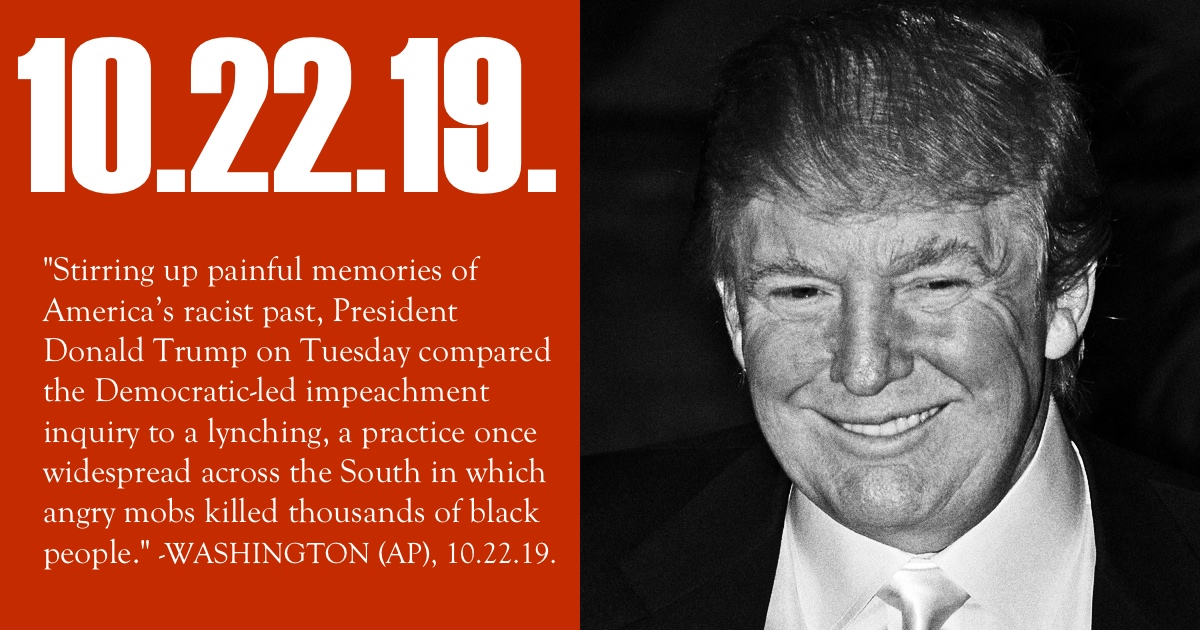Podcast: Play in new window | Download
Subscribe to Middle Theory Apple Podcasts | Email | RSS

This week Tulsi Gabbard becomes a target as Hillary Clinton weighs in on the 2020 Election, and historical perspectives are offered relating to Donald Trump’s use of the word “lynching.”
Last May, journalist Bari Weiss wrote in the New York Times that the Intellectual Dark Web was “a collection of iconoclastic thinkers, academic renegades and media personalities who are having a rolling conversation — on podcasts, YouTube and Twitter, and in sold-out auditoriums — that sound unlike anything else happening, at least publicly, in the culture right now. Feeling largely locked out of legacy outlets, they are rapidly building their own mass media channels.”
Since that time, many have tried to understand what, precisely, the Intellectual Dark Web is, and what it represents in the American intellectual movement. Michael Shermer offers a few perspectives, which we outline before turning our attention to Tulsi Gabbard, who was recently the object of criticisms by Hillary Clinton, who seemed to imply that Gabbard was being “coopted” by Russian interests. We also examine Clinton’s general perspectives on the 2020 Election and Donald Trump’s role in it.
However, Trump is getting negative press this week for more than just the forthcoming impeachment hearings, as he recently referred to his plight as “a lynching.” It was a poor choice of words since the history of this term is most often associated with hate crimes against African Americans during the late 19th and early 20th centuries.
According to Merriam Webster’s online dictionary, lynching is defined as a verb meaning, “to put to death (as by hanging) by mob action without legal approval or permission.” However, Donald Trump’s use of the term has not only stirred controversy over its apparent racial overtones, but also the way his history of remarks that seem to indicate negative attitudes toward minority groups haven’t helped him in the aftermath of referring to his own ordeal as a political “lynching.”
DOLLARS FOR DONUTS
A special thank you to those who donated to the podcast this week:
- Jennie Vongvith
- Ali Buchan
- Lauren Turinetti
If you like Middle Theory and want to help support the show, you can donate to the program here:
We also offer SUBSCRIPTION accounts for those who would like to make recurring monthly payments to Middle Theory. If you would prefer to SUBSCRIBE to the program, click here to visit our DONATES page, and scroll down below the primary DONATE button.
SHOW NOTES
- STUDIES IN DARKNESS: Preliminary Empirical Study Shedding Light on the Intellectual Dark Web
- TAKING ON TULSI: The complete and utter weirdness of Hillary Clinton’s attack on Tulsi Gabbard
- AUDIO: Hillary Clinton talks about the 2020 presidential election
- AUDIO: Gabbard slams allegations of Russian influence
- LYNCH-PINNING: Trump likens House impeachment inquiry to ‘a lynching’
- A mob lynching of 4 black sharecroppers in 1946 is focus of court battle over grand jury secrecy
- Some Congressmen Show Support Following Trump’s Lynching Tweet
- NAACP History of Lynchings in the United States
- Donald Trump’s history on race makes his ‘lynching’ comment crystal clear
- AUTHORS ANONYMOUS: Anonymous author of Trump ‘resistance’ op-ed to publish a tell-all book
JOIN US: REACH OUT TO MIDDLE THEORY
To send us feedback, you can email us here. Also, follow Middle Theory on Twitter too… this is highly recommended, and may even be vital for some of you. Finally, as mentioned earlier, some may be further compelled to donate to the program, which helps keep ads for survival gear, water filters, male enhancement supplements, and do-it-yourself earthworm farming kits off the program.

